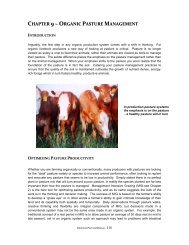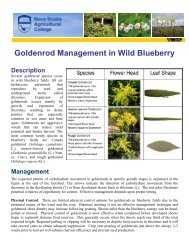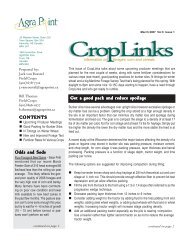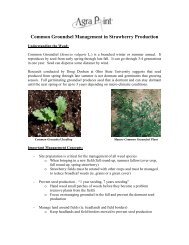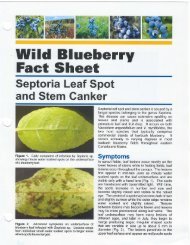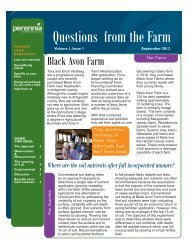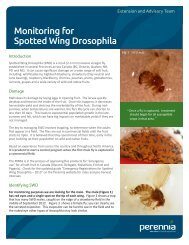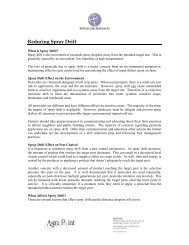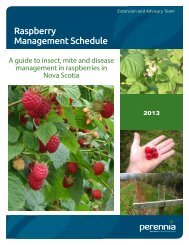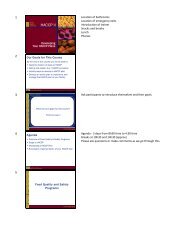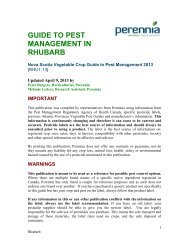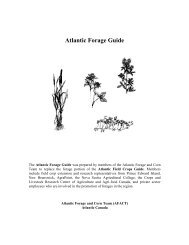Wireworms - Perennia
Wireworms - Perennia
Wireworms - Perennia
Create successful ePaper yourself
Turn your PDF publications into a flip-book with our unique Google optimized e-Paper software.
necessary. If wireworm populations have reached high levels, it will take several years to<br />
eliminate or bring populations below threshold levels.<br />
Lifecycle:<br />
September:<br />
Larvae and pupae<br />
begin<br />
overwintering.<br />
April - June:<br />
Overwintering<br />
larvae become<br />
active; some feed<br />
and pupate.<br />
Adult click<br />
beetles emerge<br />
and mate<br />
July: Eggs hatch,<br />
new larvae begin<br />
feeding, older<br />
larvae feed and<br />
some pupate.<br />
August: Larvae<br />
continue feeding<br />
and some pupate.<br />
Best Management Techniques:<br />
<strong>Wireworms</strong> in the soil are feeding off of decomposing organic plant material; therefore forage in<br />
the vegetable or potato rotation is undesirable. Crop rotation is extremely important in managing<br />
wireworms and as part of a control strategy, growers are advised not to grow crop in which<br />
wireworms thrive, mainly hay and sod, but instead to grow crops which can be treated for<br />
wireworms, such as wheat and corn. Trap cropping using a wheat crop treated for wireworms is<br />
exceptionally important as part of the overall control strategy, but even more so in fields with<br />
high infestation levels. Shallow cultivation in summer fallow situations helps to expose the<br />
wireworm larvae to birds and predators or mechanical damage.<br />
Insecticide application is an important part of overall wireworm management. For the 2007<br />
growing season, Furadan 480 F systemic liquid insecticide has been registered in Nova Scotia for<br />
the reduction in numbers of wireworms. Please refer to the supplemental label for more<br />
information.<br />
Managing wireworms requires regular and consistent monitoring and diligent field management;<br />
there is no quick fix solution for this pest.<br />
For more information, please refer to the more detailed wireworm article at www.agrapoint.ca or<br />
contact: Alana Respondek, Horticulture Crop Specialist or Dr. Viliam Zvalo, Horticulture Crop<br />
Specialist at (902) 678-7722 or AgraPoint’s Ag Info Centre 1-866-606-4636.<br />
© AgraPoint International Inc.<br />
Page 2 of 2



